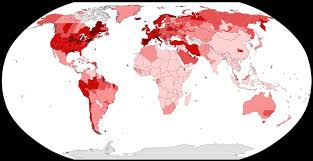Registration
Virtual workshop on Zoom. Dates: February 25 and 26, 2021. To register, please fill out this form : https://nsf.zoomgov.com/webinar/register/WN_XuW5oy-gSy261eE7es9c3w The Zoom meeting link will be sent to the email which was used to register for the workshop.Although pandemics have threatened human civilization since the ancient times, how to predict and prevent them remains one of the most pressing challenges, calling out for innovative insights and practices. Pandemics emerge through incidental 'perfect storms': molecular changes in pathogens, gradual trends in climate, subtle shifts in ecological interactions among potential hosts, and even individual behavioral decisions by people, all colluding to make up the difference between an interesting but rare new variant of a known disease and an existential worldwide crisis. Being able to predict the emergence of pandemic threats, therefore, requires a fully integrated, multidisciplinary approach, able to consider the complexity of these realms across scales of interaction to predict and, ideally, prevent.
This workshop will include experts from otherwise disparate scholarly communities in biology, mathematics, engineering, computer science, ecology and social science to come together and discuss how to integrate the approaches taken by each community into a more effective, unified science of pandemic prediction. Discussions will leverage recently developed advances in disease ecology, computational biology and biophysics, information and network science, sensing, and statistics to analyze pertinent data, enabling inference of difficult-to-measure information and the integration of real-time observation, computation, and experimentation.
The workshop aims at formulating a new science base on pandemic preparedness, identifying scientific gaps that need to be addressed, and discussing how to design solutions to fill those gaps in ways that anticipate multidisciplinary use. Participants will consider how to construct integrative and multidisciplinary frameworks to enable better insights into the fundamental processes of pandemic emergence and translate those insights into practical tools for preventing and/or mitigating pandemic threats. It is anticipated that the workshop will result into concrete recommendations for how the critical and diverse relevant fields can move forward together to increase global safety, guarding against future pandemics.


